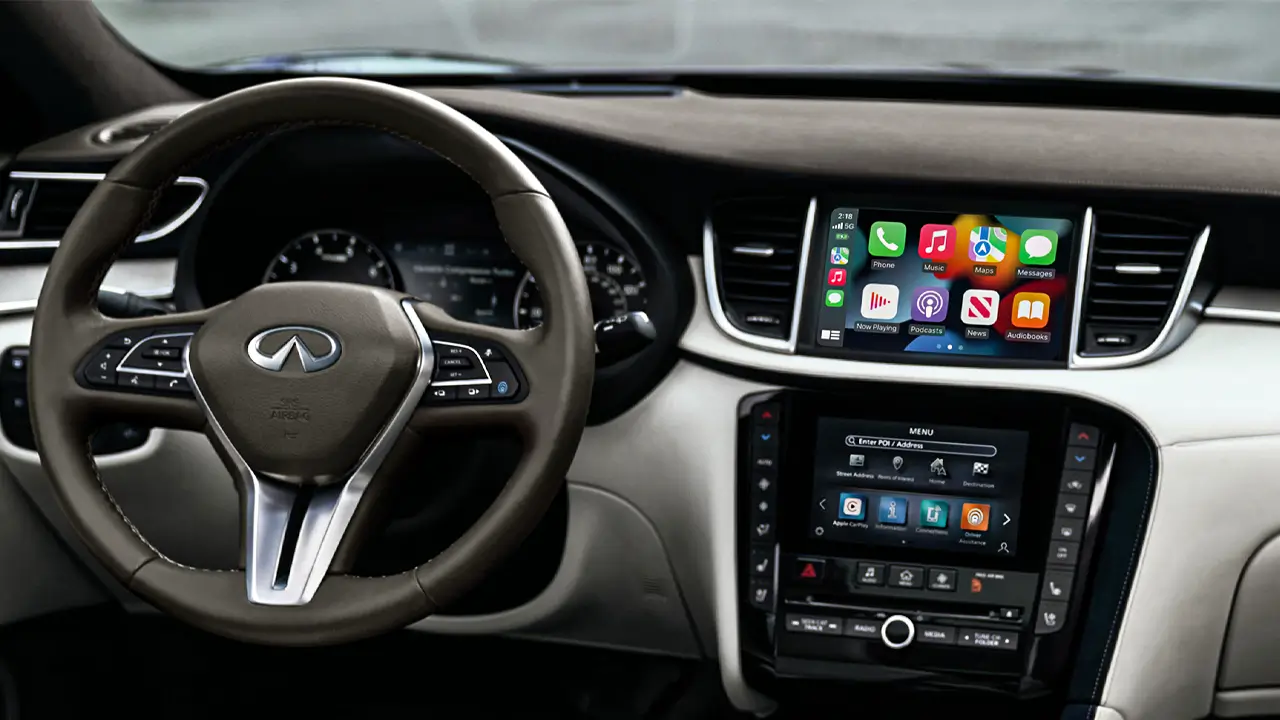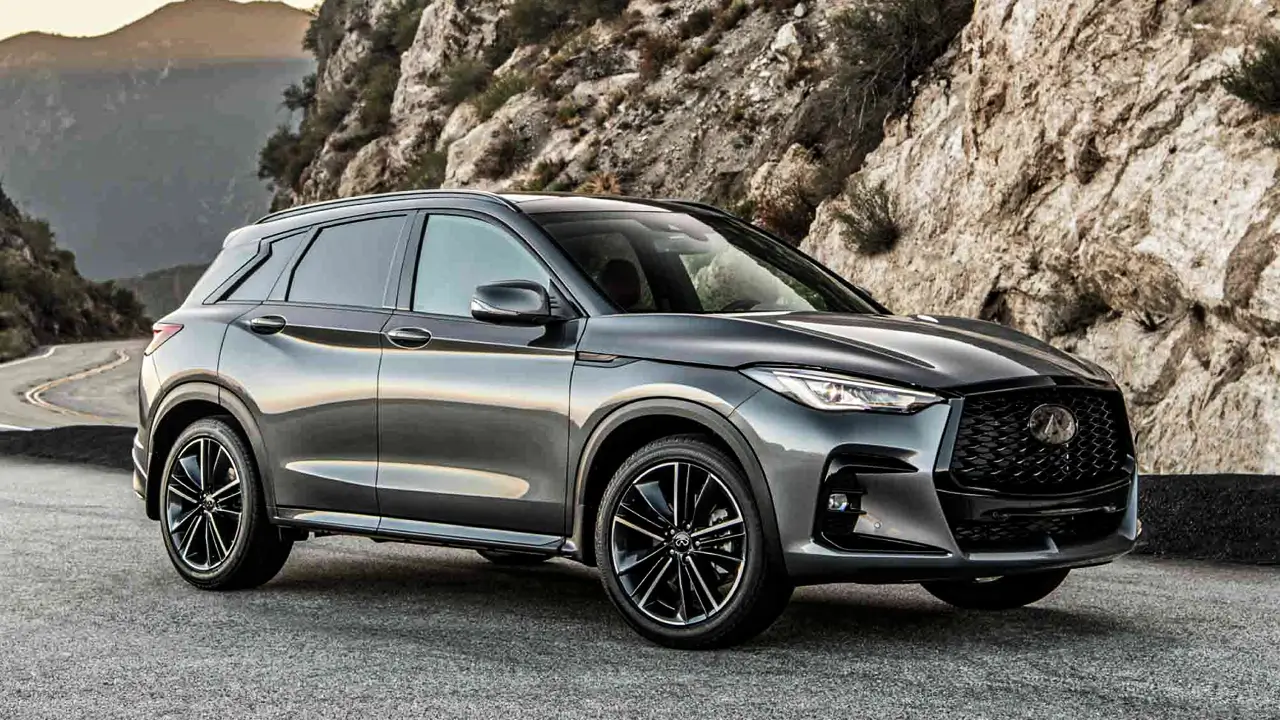Nissan Stops U.S. Orders for Infiniti SUVs and the Bigger Picture Behind It
Sometimes the news we see in the auto world feels like just another update. But this one is different. Nissan has officially paused new orders in the United States for its Infiniti QX50 and QX55 SUVs. That might sound like just a supply chain hiccup but when you dig a little deeper it tells a much bigger story. This move is not just about two SUV models. It is part of a shifting strategy that touches on global trade politics changing factory plans and how automakers are being forced to adapt to survive.
If you’re someone who’s following car industry trends closely or if you’re just trying to understand why your favorite SUV might suddenly not be available anymore you’re in the right place. I’m going to break it down clearly simply and in a way that makes sense even if you’re not an industry expert. Let’s walk through what happened why it matters and what we can expect next.
Nissan stops U.S. orders for Infiniti SUVs
So here’s the main news. Nissan has decided to pause new orders in the United States for the Infiniti QX50 and QX55. These two premium SUVs are both built in Mexico at the COMPAS plant which is a joint operation between Nissan and Daimler. The decision comes right after the introduction of a new 25 percent tariff on imported vehicles from certain regions including Mexico.
This tariff has made it a lot more expensive for automakers to bring in cars built outside the U.S. Naturally Nissan had to act quickly. Instead of passing on the higher cost to consumers which would make the SUVs far less competitive they chose to stop orders for now. Production is still continuing but those vehicles will now be sent to markets like Canada and the Middle East where the new tariffs do not apply.
This move is not a cancellation it’s a pause. But Nissan hasn’t said how long the pause will last and that’s what has a lot of people paying attention.
Why this is more than just about two models
At first glance it might feel like this only affects two vehicles. But actually it reflects how global the car industry really is and how sensitive it can be to political changes. For example if a car is built in Mexico and sold in the U.S. and suddenly there’s a new cost of 25 percent added to every unit then the entire pricing strategy has to change. That change can impact dealers buyers factory workers and even competitors.
What makes this even more complex is that automakers like Nissan don’t just build cars in one country for one market. They build based on global strategies. The Infiniti QX50 and QX55 were designed with American buyers in mind. Their features their design even their marketing were tailored toward a U.S. audience. So when orders are paused it means that a whole system built around these cars needs to be rethought.
It’s also worth noting that Nissan isn’t alone in facing this challenge. Jaguar Land Rover has also paused U.S. shipments to better understand how the new tariffs will affect their business. Other automakers may soon follow or find different ways to adjust.

Nissan responds with changes to U.S. production
Here’s where the story takes another interesting turn. While orders for the Infiniti SUVs have been paused Nissan has made another announcement. At their plant in Smyrna Tennessee which makes the Rogue SUV the company had previously planned to cut production down to one shift. Now they’ve reversed that decision and will continue running two shifts instead.
That means more local production more U.S. jobs and a stronger focus on cars that are made inside the country. The Rogue is one of Nissan’s top selling models in the U.S. and increasing its production here is a clear sign that Nissan is trying to reduce its reliance on imported models that might be affected by tariffs.
This kind of shift shows just how quickly automakers are having to rethink their strategies. They need to stay flexible and make sure they can still offer the right cars at the right prices without getting caught up in rising costs.
What this means for buyers and dealers
If you’re someone who was planning to buy a QX50 or QX55 soon this news may be disappointing. The SUVs are still available in stock at many dealerships so you might still find one if you act quickly. But going forward new inventory will not be arriving in the U.S. until Nissan reopens the order process.
For dealers this creates a challenge in terms of managing inventory and helping customers explore alternatives. Some buyers may turn to the Nissan Rogue which is being produced locally. Others might look at other luxury SUVs in the same price range.
And for future buyers this move might be a sign that it’s worth paying attention to where your car is made and how that can affect pricing and availability. It’s a new layer in the decision-making process that wasn’t always so obvious before.
- Audi GT50 Concept: A Loud Reminder of Why Car Enthusiasts Fell in Love With Audi
- Nearly 30% of UK Drivers Believe Car Tax Should Be Based on Mileage — Survey
- Why Planes and Boats Escaped the Luxury Tax But Cars Didn’t
- Australia’s Headlight Confusion: Authorities Warn Drivers After Viral $250 Headlight Rule Goes Wild Online
- 2025 Hyundai Venue Facelift Launched in India – Full Details, Variants, and Price
Final verdict
From my point of view this decision by Nissan is not surprising but it is definitely important. It shows how global policies can quickly change what cars are available and at what cost. It also highlights how complex and interconnected the auto industry really is. One change in trade policy can affect supply chains across several countries.
I think Nissan made the right call under the circumstances. Rather than selling the vehicles at a loss or raising prices unfairly they’ve taken a step back to reassess. And at the same time they’re focusing more on local production which in the long term might help them become even more resilient to these kinds of changes.
For buyers the lesson here is simple. The next time you’re thinking of buying a car it’s worth taking a moment to look beyond the features and price tag. Where is it made How might tariffs or policies affect it Will that model still be available six months from now?
